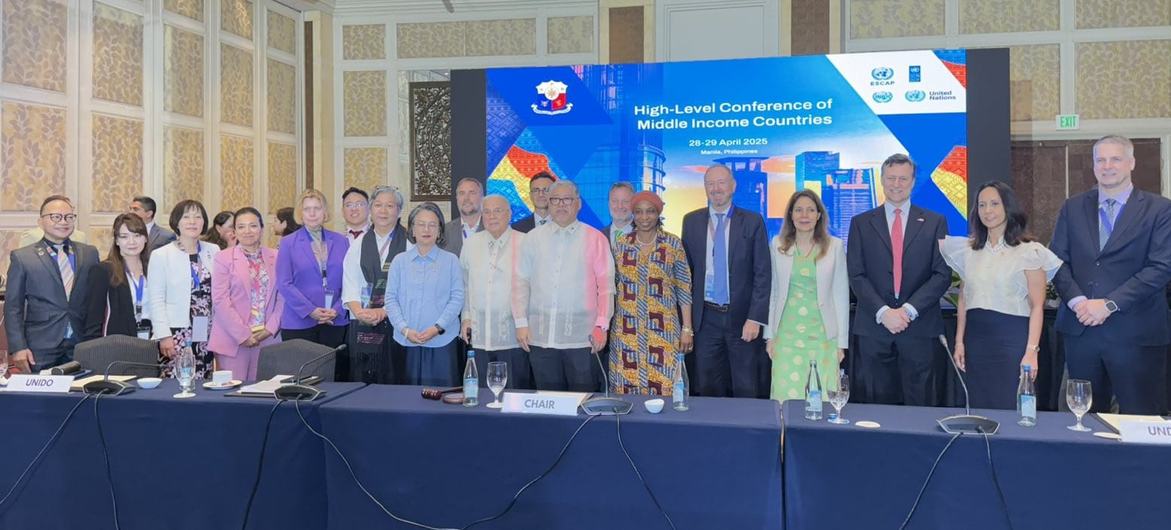Stuck in the middle? Indebted nations plot path to growth amid global trade upheaval | UN News
Faced with mounting debt and economic stagnation, middle-income countries have issued a call for financial reform, sustainable investment, and a roadmap to escape the so-called “middle-income trap,” at a UN-backed international conference held in Manila, Philippines, which concluded on Tuesday.
“This calls for domestic policy reforms aimed at expanding fiscal space, maintaining debt sustainability and channeling resources towards productive investments.”
The Makati Declaration on Middle-Income Countries calls for the UN to support MICs in accessing development financing, including via innovative financing mechanisms, and to provide support in a number of areas, ranging from programmes and initiatives to mitigate and adapt to the climate crisis to digital transformation and making countries more resilient to global shocks (see full list of measures below).

“We recognise that middle-income countries experience frequent growth slowdowns, and if left unaddressed, this loss of economic dynamism can cause countries to get stuck in what is referred to as the “middle-income trap,” the Declaration states.
“We stress that middle-income countries continue to face specific challenges related to, inter alia, high levels of inequalities, low growth, persistent poverty, unemployment, loss of biodiversity, the adverse effects of disaster risks and climate change, reliance on primary commodity exports, high levels of external debt and the volatility of exchange rates and capital flows, and digital divide.”
MICs will strengthen cooperation among themselves and offer increasing resources under technical cooperation between countries in the global South, which could become particularly important given the recent reduction in development support from traditional donors of the global North.
“We are re-moulding traditional development partnerships as more MICs, including the Philippines, increase resources for South-South and technical cooperation,” said Enrique Manalo, Secretary for Foreign Affairs of the Philippines at the event.
“This is a trend that, if scaled up, could potentially result in game-changing dividends for the global development system.”
The Like-Minded Group of MICs are “as champions of multilateralism,” he added. “Carving a steady path for all middle-income countries behooves us to support strongly an international rules-based order underpinned by equity and justice.”






